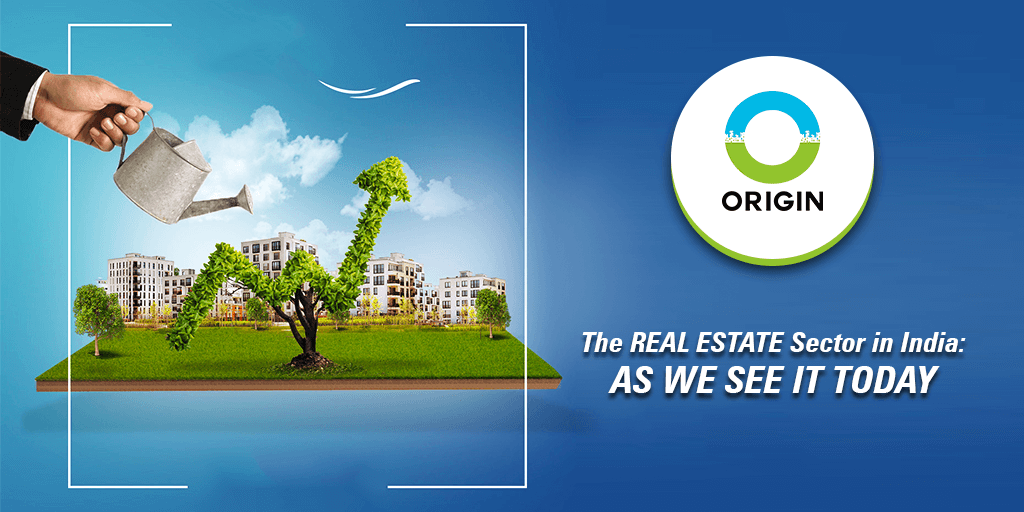The real estate sector is one of the most recognised sectors in the world, especially when it comes to India. It is a significant contributor to the Indian economy and has witnessed major ups and downs over the years, recently due to the Covid-19 pandemic. There has been infrastructural development in the form of residential and commercial real estate, including office spaces, retail growth and factory spaces.
The size of real estate sector will grow by 2030
In 2019-20, the real estate sector in India contributed to 7% of the country’s total GDP, estimated to be valued at around USD 200 billion. With projections playing out, it is estimated that by 2030, this number will cross USD 1 trillion. By 2025, the sector will contribute about 13% to the country’s GDP.
This sector is expected to have a growth of around 20% within the next decade. The high growth of this sector has been matched by an equally high demand for urban and semi-urban office spaces, accommodations and a need for a corporate environment to work in. It is also expected that this sector will incur more NRI investments, with Bengaluru being their most favoured property investment destination. This is followed by Ahmedabad, Pune, Chennai, Goa, Delhi and Dehradun.
In a report, it was found that Mumbai and Pune account for more than half the total sales of the top seven cities in India. Leading by 53%, these places lead the way when it comes to driving housing sales. The report also advocated that Mumbai saw a decline of 8% in unsold housing stock at the same time.
This means that people are growing to understand and accept the sentiment that comes behind buying their own house and are ready to make that kind of investment. The pent-up demand for housing investments is bound to push growth in this sector. As the country witnessed a structural transformation in housing demand, there are a large number of first-time homebuyers and investors who aim to move up the property ladder and create a diverse investment portfolio in multiple locations.
Importance of the Real Estate Sector in the Indian Economy
The real estate sector is the second largest employment generator after agriculture in India, providing around 5.5 crore employment opportunities for people. This is due to the chain of linkages that this sector possesses with other sectors of the economy, such as the financial and business sectors. Around 250 industries including cement, steel, brick industries depend on the real estate sector. With timely reforms, this sector can become a major wealth creator in the coming years.
The Impact of stamp duty
With the successful introduction of stamp duty cuts, within the first six months of this year, Mumbai and Pune have posted 45% of the 67% year-on-year sales among key markets. The decision to cut stamp duty has boosted housing sales, reducing inventory by 18% from 30,858 units in June 2020 to 25,240 units by June 2021.
The Implementation of RERA
In the last 7 years, the real estate sector has transformed, and the implementation of RERA has an important role in this change. Since this law has been passed with regulatory authorities across states, a total of 67,313 projects have been registered in the country. 31,331 of these projects are based in Maharashtra, followed by 8,685 in Gujarat and 4,151 in Karnataka. A total of 27,825 complaints have been disposed of till now.
The Real estate Sector will lead the path to economic recovery
Within the first six months of 2021, the Indian housing market has reversed the downfall that 2020 succumbed to. Between January and June 2021, new launches increased by 71%, and home sales shot up by 67%. This could be accredited to the reductions in repo rates, stamp duty and ready reckoner rates that have driven sales through the April-June quarter this year.
With attractive offers, monetary reforms like low-interest rates and added liquidity in the banking system, the Indian real estate sector has witnessed historical year-on-year growth like never before. The foresight of the first wave of the pandemic let real estate developers change their focus and bring a different level of preparedness. This has helped in the growth of residential sales.
Today, there are better numbers as compared to 2020. We are set in motion for a faster recovery of the economy, so it is only fair to be optimistic about the growth of this sector. Though there is room for further improvement, we can say that the real estate sector is about to experience a new kind of revival in the coming months.

